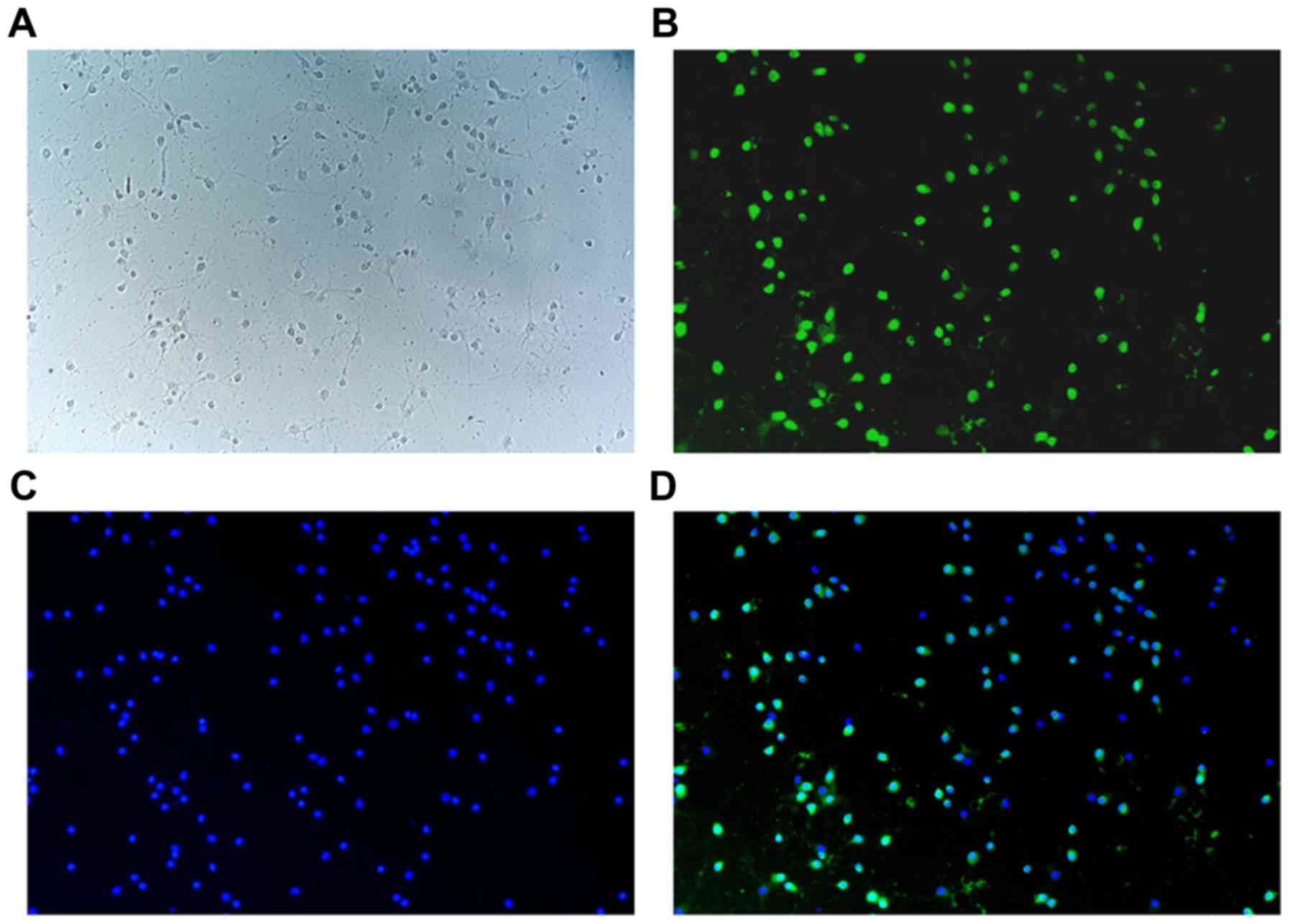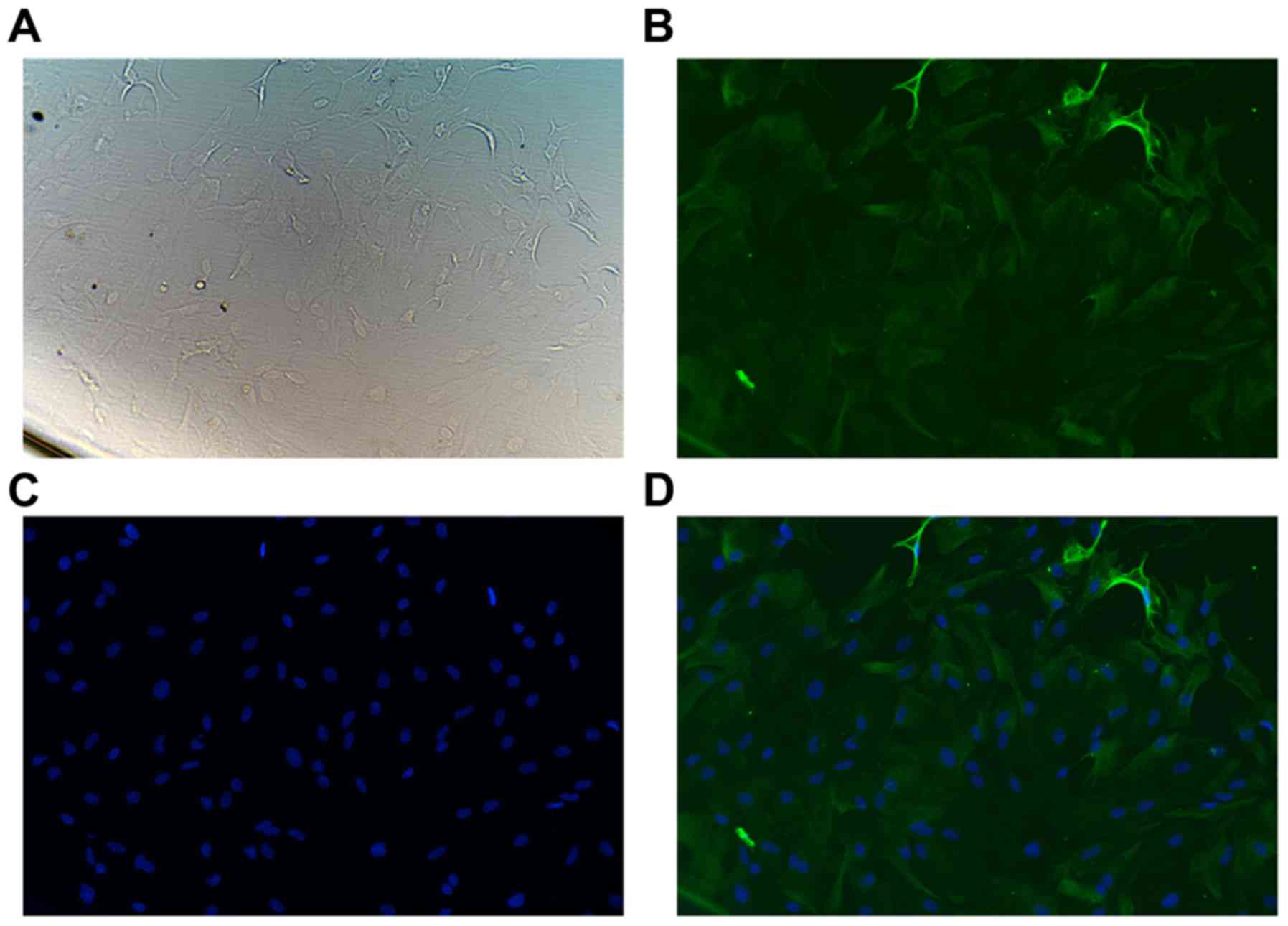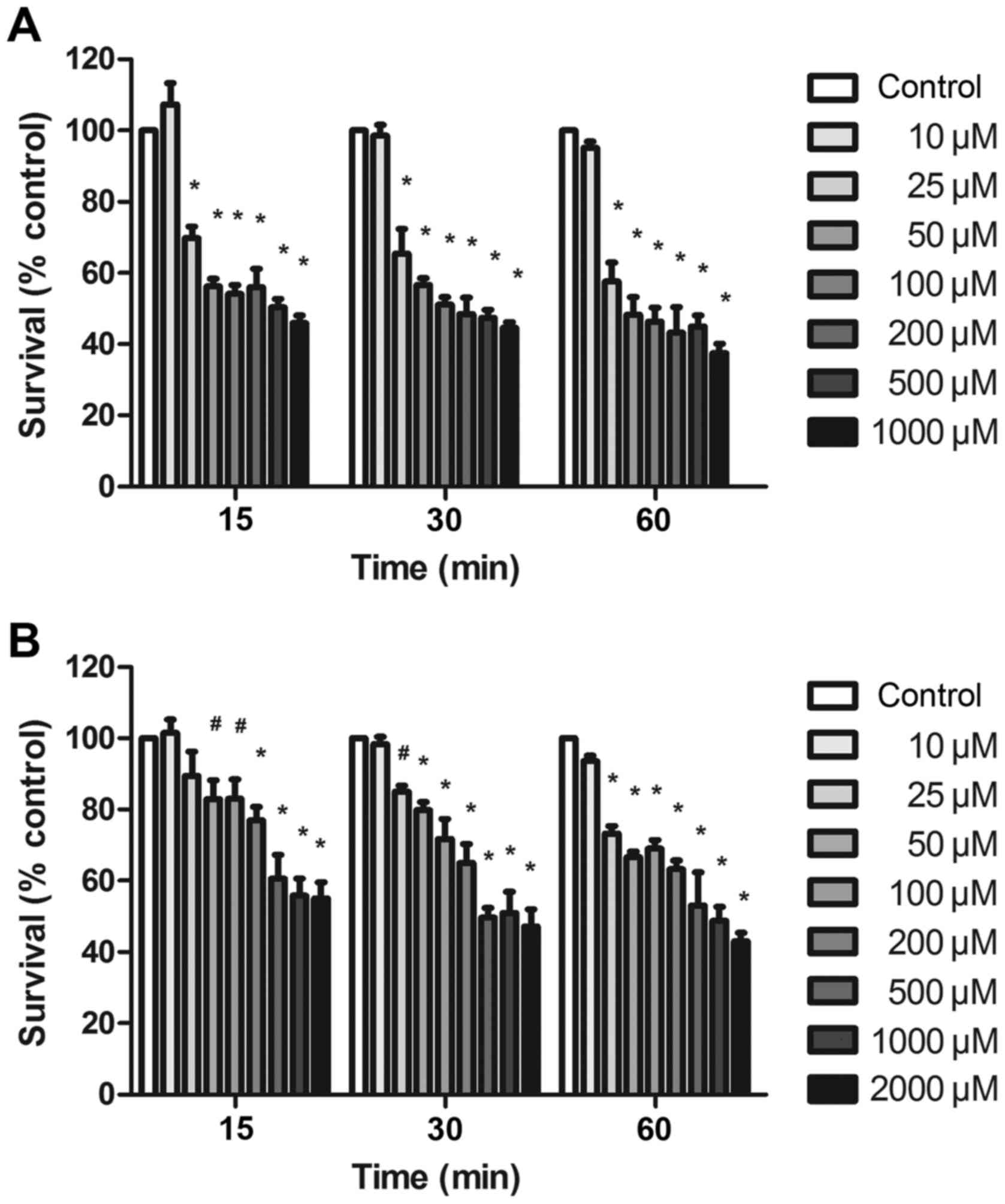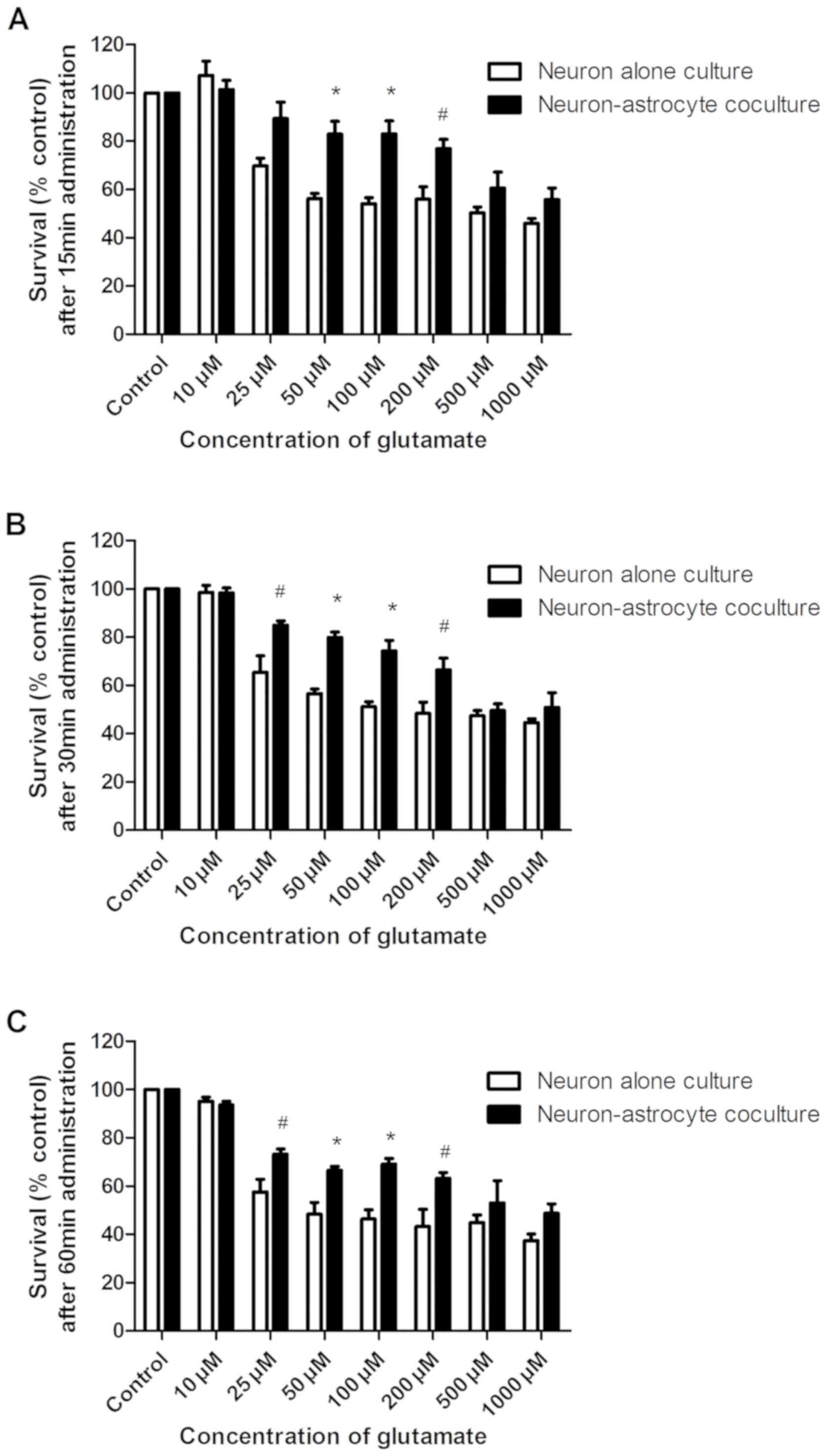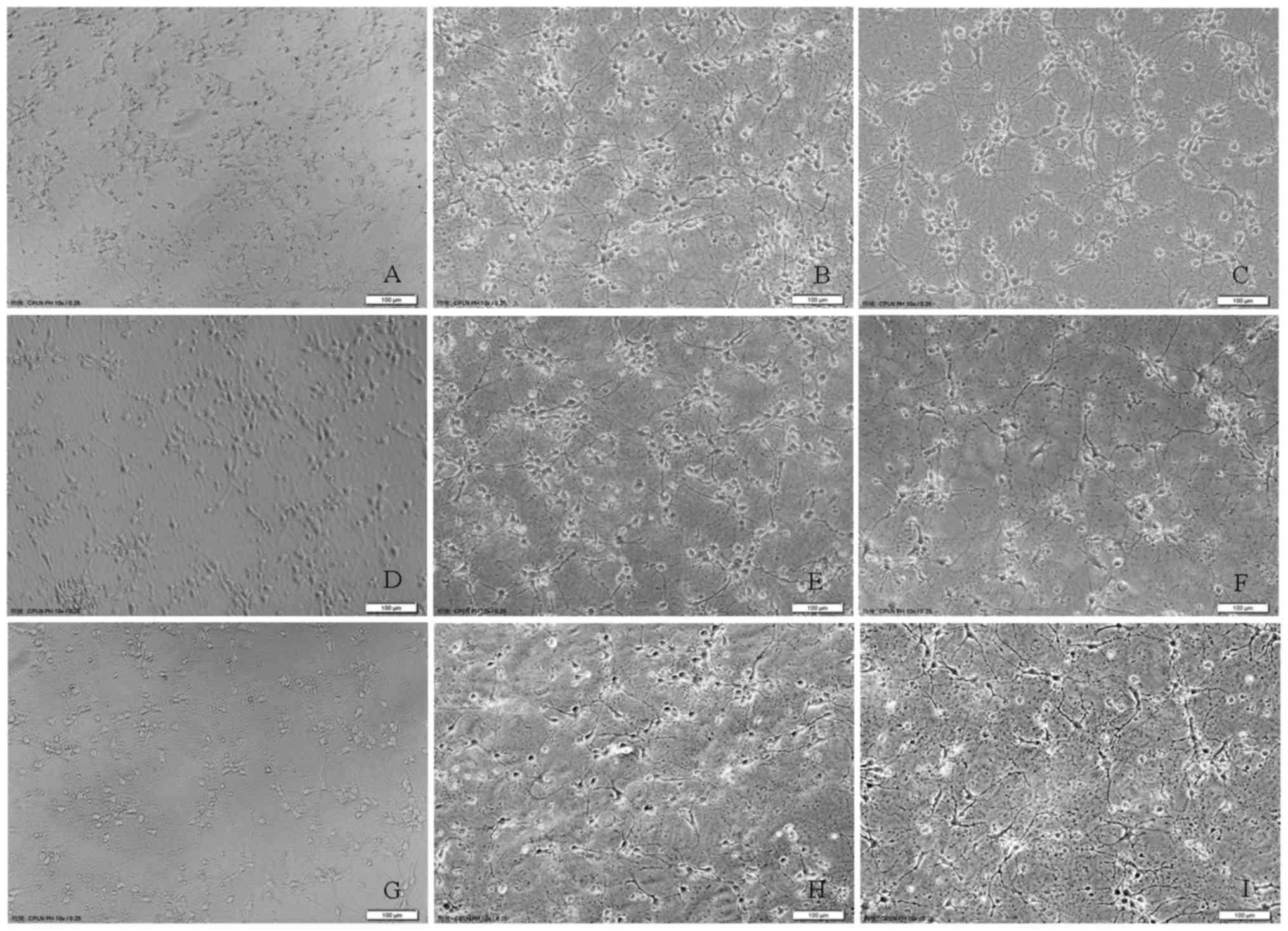|
1
|
Lerma J, Herranz AS, Herreras O, Abraira V
and Martín del Río R: In vivo determination of extracellular
concentration of amino acids in the rat hippocampus. A method based
on brain dialysis and computerized analysis. Brain Res.
384:145–155. 1986. View Article : Google Scholar : PubMed/NCBI
|
|
2
|
Baker DA, Xi ZX, Shen H, Swanson CJ and
Kalivas PW: The origin and neuronal function of in vivo nonsynaptic
glutamate. J Neurosci. 22:9134–9141. 2002. View Article : Google Scholar : PubMed/NCBI
|
|
3
|
Nyitrai G, Kékesi KA and Juhász G:
Extracellular level of GABA and Glu: In vivo microdialysis-HPLC
measurements. Curr Top Med Chem. 6:935–940. 2006. View Article : Google Scholar : PubMed/NCBI
|
|
4
|
Patneau DK and Mayer ML:
Structure-activity relationships for amino acid transmitter
candidates acting at N-methyl-D-aspartate and quisqualate
receptors. J Neurosci. 10:2385–2399. 1990. View Article : Google Scholar : PubMed/NCBI
|
|
5
|
Levy LM, Attwell D, Hoover F, Ash JF,
Bjørås M and Danbolt NC: Inducible expression of the GLT-1
glutamate transporter in a CHO cell line selected for low
endogenous glutamate uptake. FEBS Lett. 422:339–342. 1998.
View Article : Google Scholar : PubMed/NCBI
|
|
6
|
Kutzing MK, Luo V and Firestein BL:
Measurement of synchronous activity by microelectrode arrays
uncovers differential effects of sublethal and lethal glutamate
concentrations on cortical neurons. Ann Biomed Eng. 39:2252–2262.
2011. View Article : Google Scholar : PubMed/NCBI
|
|
7
|
Zhang J, An S, Hu W, Teng M, Wang X, Qu Y,
Liu Y, Yuan Y and Wang D: The neuroprotective properties of
hericium erinaceus in glutamate-damaged differentiated PC12 cells
and an Alzheimer's disease mouse model. Int J Mol Sci.
17:E18102016. View Article : Google Scholar : PubMed/NCBI
|
|
8
|
Cassano T, Pace L, Bedse G, Lavecchia AM,
De Marco F, Gaetani S and Serviddio G: Glutamate and mitochondria:
Two prominent players in the oxidative stress-induced
neurodegeneration. Curr Alzheimer Res. 13:185–197. 2016. View Article : Google Scholar : PubMed/NCBI
|
|
9
|
Lu Z, Chouhan AK, Borycz JA, Lu Z, Rossano
AJ, Brain KL, Zhou Y, Meinertzhagen IA and Macleod GT:
High-probability neurotransmitter release sites represent an
energy-efficient design. Curr Biol. 26:2562–2571. 2016. View Article : Google Scholar : PubMed/NCBI
|
|
10
|
Zhang Y and Bhavnani BR: Glutamate-induced
apoptosis in neuronal cells is mediated via caspase-dependent and
independent mechanisms involving calpain and caspase-3 proteases as
well as apoptosis inducing factor (AIF) and this process is
inhibited by equine estrogens. BMC Neurosci. 7:492006. View Article : Google Scholar : PubMed/NCBI
|
|
11
|
Lamigeon C, Bellier JP, Sacchettoni S,
Rujano M and Jacquemont B: Enhanced neuronal protection from
oxidative stress by coculture with glutamic acid
decarboxylase-expressing astrocytes. J Neurochem. 77:598–606. 2001.
View Article : Google Scholar : PubMed/NCBI
|
|
12
|
Ye ZC and Sontheimer H: Astrocytes protect
neurons from neurotoxic injury by serum glutamate. Glia.
22:237–248. 1998. View Article : Google Scholar : PubMed/NCBI
|
|
13
|
Ha JS, Dho SH, Youm TH, Kwon KS and Park
SS: Astrocytic phospholipase A2 contributes to neuronal glutamate
toxicity. Brain Res 1590. 97–106. 2014. View Article : Google Scholar
|
|
14
|
Negishi T, Ishii Y, Kawamura S, Kuroda Y
and Yoshikawa Y: Cryopreservation of brain tissue for primary
culture. Exp Anim. 51:383–390. 2002. View Article : Google Scholar : PubMed/NCBI
|
|
15
|
Haseleu J, Anlauf E, Blaess S, Endl E and
Derouiche A: Studying subcellular detail in fixed astrocytes:
Dissociation of morphologically intact glial cells (DIMIGs). Front
Cell Neurosci. 7:542013. View Article : Google Scholar : PubMed/NCBI
|
|
16
|
Zhou L, Li F, Xu HB, Luo CX, Wu HY, Zhu
MM, Lu W, Ji X, Zhou QG and Zhu DY: Treatment of cerebral ischemia
by disrupting ischemia-induced interaction of nNOS with PSD-95. Nat
Med. 16:1439–1443. 2010. View
Article : Google Scholar : PubMed/NCBI
|
|
17
|
Sun Y, März P, Otten U, Ge J and Rose-John
S: The effect of gp130 stimulation on glutamate-induced
excitotoxicity in primary hippocampal neurons. Biochem Biophys Res
Commun. 295:532–539. 2002. View Article : Google Scholar : PubMed/NCBI
|
|
18
|
Bösel J, Gandor F, Harms C, Synowitz M,
Harms U, Djoufack PC, Megow D, Dirnagl U, Hörtnagl H, Fink KB and
Endres M: Neuroprotective effects of atorvastatin against
glutamate-induced excitotoxicity in primary cortical neurones. J
Neurochem. 92:1386–1398. 2005. View Article : Google Scholar : PubMed/NCBI
|
|
19
|
Jiang Q, Gu Z and Zhang G: Activation,
involvement and nuclear translocation of c-Jun N-terminal protein
kinase 1 and 2 in glutamate-induced apoptosis in cultured rat
cortical neurons. Brain Res. 956:194–201. 2002. View Article : Google Scholar : PubMed/NCBI
|
|
20
|
Savaskan NE, Bräuer AU, Kühbacher M,
Eyüpoglu IY, Kyriakopoulos A, Ninnemann O, Behne D and Nitsch R:
Selenium deficiency increases susceptibility to glutamate-induced
excitotoxicity. FASEB J. 17:112–114. 2003. View Article : Google Scholar : PubMed/NCBI
|
|
21
|
Maher P and Davis JB: The role of
monoamine metabolism in oxidative glutamate toxicity. J Neurosci.
16:6394–6401. 1996. View Article : Google Scholar : PubMed/NCBI
|
|
22
|
Choi DW, Maulucci-Gedde M and Kriegstein
AR: Glutamate neurotoxicity in cortical cell culture. J Neurosci.
7:357–368. 1987. View Article : Google Scholar : PubMed/NCBI
|
|
23
|
Amin N and Pearce B: Glutamate toxicity in
neuron-enriched and neuron-astrocyte co-cultures: Effect of the
glutamate uptake inhibitor L-trans-pyrrolidine-2,4-dicarboxylate.
Neurochem Int. 30:271–276. 1997. View Article : Google Scholar : PubMed/NCBI
|
|
24
|
Hyndman AG: The effects of glutamate and
kainate on cell proliferation in retinal cultures. Invest
Ophthalmol Vis Sci. 25:558–563. 1984.PubMed/NCBI
|
|
25
|
Olney JW: Glutamate-induced neuronal
necrosis in the infant mouse hypothalamus. An electron microscopic
study. J Neuropathol Exp Neurol. 30:75–90. 1971. View Article : Google Scholar : PubMed/NCBI
|
|
26
|
Churn SB, Sombati S, Taft WC and DeLorenzo
RJ: Excitotoxicity affects membrane potential and calmodulin kinase
II activity in cultured rat cortical neurons. Stroke. 24:271–278.
1993. View Article : Google Scholar : PubMed/NCBI
|















